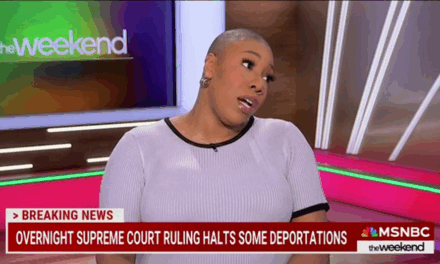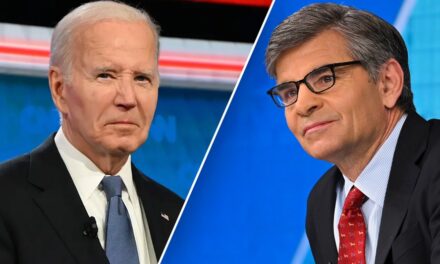In a shocking turn of events, the long-standing tension within CBS News has come into glaring focus following the abrupt departure of a key producer from the revered news show “60 Minutes.” This incident has ignited a wave of speculation and concern about the network’s internal dynamics, especially in the wake of a high-profile lawsuit against former President Donald Trump that has drawn significant media attention.
The producer, whose name has not been disclosed, reportedly resigned over disagreements related to editorial decisions and the direction of the show. Sources within CBS have indicated that the departure was unexpected and has left many staff members rattled. Insiders are suggesting that the tensions may have been exacerbated by the network’s ongoing legal troubles concerning allegations tied to coverage of Donald Trump and the broader implications for journalistic integrity.
The legal challenges facing CBS News are rooted in a lawsuit filed by Trump himself, in which he accuses the network of biased reporting and defamation. This lawsuit comes amidst a backdrop of intense scrutiny regarding media portrayals of Trump during and after his presidency. Trump’s legal team argues that CBS News has selectively reported information that among other issues has mischaracterized Trump’s statements, thereby damaging his reputation unjustly.
“60 Minutes,” a flagship program known for its investigative journalism and hard-hitting interviews, has been at the center of this controversy. The show has a storied history dating back to its inception in 1968, and any disruption in its production team can carry significant implications for its credibility and audience trust. The departure of a producer can often signal deeper issues within the editorial team, and several insiders are now raising concerns about the overall impact on the program’s future direction.
Given the increasing polarization of media in today’s landscape, CBS News is finding itself caught in a challenging predicament. With audiences having diverged viewpoints, the network is under pressure to balance its reporting without succumbing to either sensationalism or bias. Many within CBS believe that the stringent scrutiny over its coverage of Trump has put inexperienced journalists at odds with seasoned producers who have navigated these waters before.
The 60 Minutes producer’s concerns are not isolated. Numerous other journalists within CBS News have voiced their anxieties about how management is handling hard news stories, especially those that delve into politically sensitive topics. Factors contributing to this contention include the burgeoning rise of misinformation, public distrust in the media, and the consequences of covering powerful figures.
CBS News executives are in a delicate position as they navigate the lawsuit while defending their journalistic integrity. Some analysts suggest that the network should prioritize transparency and accountability, especially as it grapples with critiques about its fairness in reporting on Trump. However, others worry that such scrutiny can lead to a chilling effect on journalists, inhibiting their ability to report freely on critical issues.
The situation is indicative of a broader struggle within the news industry, where traditional standards of journalism are increasingly being challenged. In an era when many consumers gravitate towards media that aligns with their preconceptions, networks face double-edged swords: they must both provide impartial coverage and retain ratings. High-stakes political narratives are notorious for optimizing viewer engagement, but they simultaneously risk alienating segments of their audience.
The departure of a producer from such a high-profile show has opened discussions about wider systemic issues within newsrooms. Reports from other outlets suggest similar unrest at various media organizations where employees are grappling with their ethical responsibilities versus the demands of their corporate overseers. For some, loyalty to journalistic principles is leading to disillusionment; for others, the financial realities of working in news may outweigh those concerns.
Furthermore, CBS News’s unique positioning amidst a myriad of competing media narratives frames the urgency for a reassessment of how news is reported and consumed. For “60 Minutes” to maintain its threshold of excellence, the producers and journalists must work in an environment where they feel empowered to make editorial decisions free from undue pressure or fear of retribution.
As CBS News moves forward, the exit of its producer could serve as a catalyst for change, prompting the network to reassess its internal policies in relation to production and editorial oversight. A focus on improving avenues for open dialogue between management and staff may foster a healthier workplace culture, one that supports journalistic principles while still being responsive to the external pressures of the current media landscape.
The legal implications of the Trump lawsuit remain to be seen as CBS News prepares its defense. The network’s strategy will undoubtedly come into sharper focus in light of this upheaval. Crucially, CBS must be prepared to articulate its commitment to upholding journalistic standards amidst the swirling controversies. The outcomes of this case are not just about the legal boundaries of reporting; they are also sharply tied to the question of what constitutes credible journalism in today’s increasingly complex environment.
Staff morale in newsrooms is a vital ingredient for impactful reporting, especially when covering contentious figures. As CBS navigates its challenges, including the ongoing Trump lawsuit and the fallout of the producer’s resignation, the balance between delivering hard-hitting journalism and maintaining an open, fair workplace culture will be paramount.
This situation emphasizes the necessity for media organizations to recalibrate their approach toward management-employee relationships. In an industry facing transformative changes, including evolving audience expectations and unprecedented challenges posed by disinformation, cultivating a robust network of trust among journalists remains imperative.
As “60 Minutes” prepares for the future, CBS News executives must recognize that the foundation of its success relies not only on its legacy of impactful storytelling but on nurturing an environment where journalists feel valued, respected, and free to pursue the truth.
Ultimately, the departure of the producer stands as a pivotal moment in CBS News’s history as it confronts the multifaceted adversities of its current media landscape. In an age where every headline can have resonate beyond immediate stories, CBS must rise to the occasion and affirm its dedication to principled journalism while weathering the ongoing challenges brought upon by political litigation and public skepticism.
































